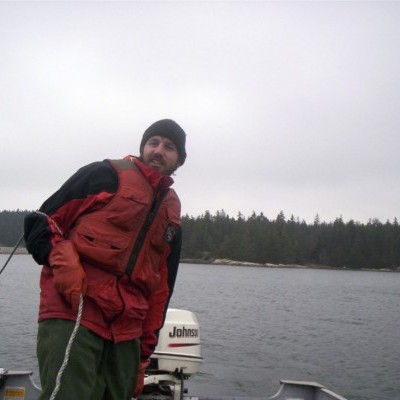
Jordaan joined the University of Massachusetts Amherst (UMass) in September 2012 after serving as adjunct Assistant Professor at Stony Brook University (SBU), as well as a consultant on a number of research projects. His research employs quantitative modeling and statistical approaches to understand ecological patterns and life processes in marine, near-shore and freshwater systems. He am particularly interested in the sometimes subtle links between ecosystems that are critical for sustaining ecological communities and human resources. From an applied perspective, understanding anthropogenic and natural variation within aquatic and marine animal populations helps to develop effective regulatory, restoration, and social options for cross boundary ecosystem management.
Mapping the spatial distribution of fish populations and using this information to design area-based protection has been a primary research theme for the last ten years. Recently, Jordaan has been investigating how multi-species interactions form species assemblages and biodiversity gradients. In particular, he has been exploring how the movements of anadromous fish, which are generally at low historical abundance, extend their interactions across distinct ecological regions. This calls into question the nature of boundaries between natural systems. Exploring ecosystem permeability and connectivity has clear implications for management and also for understanding a world in which natural boundaries are increasingly uncertain.
Meeting the environmental challenges of the coming century will require integrating basic fisheries research, such as otolith aging and field surveys, with novel approaches using complex genetics, GIS and computer-intensive modeling, and insights from social-science and the humanities in order to inform policy from global to local scales. Jordaan looks forward to developing new partnerships with non-profit, governmental and academic institutions and with ecologists, modelers, geneticists, paristologists, biogeochemists, policy makers, social scientists and historians who want to collaborate on environmental research. A high priority is developing and maintaining a freshwater research facility near Amherst in which to begin research on the early life history of river herring. In the Caribbean, he plans to use acoustic research methods to investigate yellowtail snapper movements. Data from the phenology synthesis will be combined with ecosystem models developed for the Lenfest Ocean Program to explore the impacts of climate change on biota, marine and coastal ecosystems and ecosystem services that contribute to human well being.